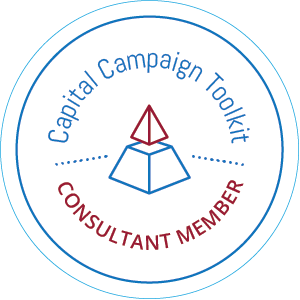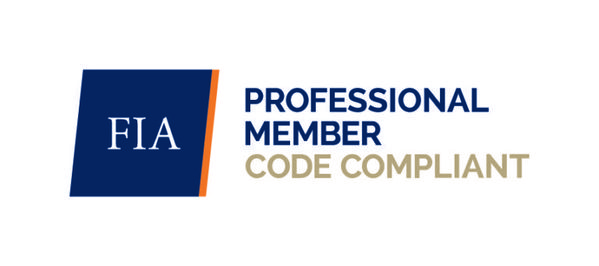Just this week, I have spoken to two coaching clients about the stages of grieving after losing a job. Yes, there are actual stages of grieving that one must go through that follow Elizabeth Kubler Ross identified stages of grieving a death. To lose a job can be extremely traumatic and emotional, more so than one would think.
This whole topic got me thinking about how we sometimes “die little deaths” in our everyday work life.
I know, because I have been there.
Let me explain.
In 1969 Kubler-Ross described five stages of grief in her book “On Death And Dying.” These stages represent the normal range of feelings people experience when dealing with change in their lives – or the workplace.
All change involves loss at some level. The “Five stages” model is used to understand how people react to change at different times.
The stages were first observed as a human response to learning about terminal illness. They have also been used to understand our responses to all kinds of change.
The five stages of grief Kubler-Ross observed and wrote about are:
- Denial
- Anger
- Bargaining
- Depression
- Acceptance
>>>Quick station break – article continues below and you’ll want to get your hot little hands all over my new 7 Tips to Take Back Control of Your Time Guide. Get a copy of your guide here!>>>
What do I mean when we “die little deaths” in our work life. Well, for me, the most significant little death has always been the death of my expectations about what I could or could not accomplish in my job.
So, let me walk you through how we “die” these little deaths of expectations.
Shock or Denial
“I can’t believe it,” “This can’t be happening,” “Not to me!”, “Not again!”
Denial is usually a temporary defense that gives us time to absorb news of change before moving on to other stages. It is the initial stage of numbness and shock. We don’t want to believe that the change is happening.
In our fundraising work, we go on job interviews and painted “rosy” pictures of what it will be like in our new workplace. We are told about how engaged the Board may be in fundraising, how exciting of a time it is to come on board during a new capital campaign, and how your support staff is top-shelf.
Then there is the day when you first arrive at your new job. Everything seems like nirvana until a few weeks settle in, and you slowly realize that this job sounds like the last one and maybe even the one before that.
And it hits us. “I can’t believe…they told me it was so different before I took the job!” or “This can’t be happening to me again…they promised the Board was so engaged with fundraising.” or “Not again! … I have an Executive Director who expects miracles of me.”
You just can’t believe that things aren’t the way that they were initially painted to you. You just can’t believe that this is happening again.
Anger
“Why me? It’s not fair!” “NO! I can’t accept this!”
When we realize that the change is real and will affect us, our denial usually turns to anger. Now we get angry and look to blame someone or something else for making this happen to us.
What’s interesting is that our anger may be directed in many different directions.
I’ve seen people angry with the boss, themselves, or even God. In these tough economic times, it’s often the economy that is blamed. It’s the government or top management’s fault for not planning properly.
You might find you are more irritable towards colleagues or family. You’ll notice others finding fault with the smallest things.
In this stage, you get angry. Angry at your boss, at your Board, at your co-workers. You may even get a bit subversive, and then you take your anger home. Constantly ruminating about this happening again, “they just don’t get philanthropy!” or “how do I keep finding these bad jobs?” or “I have to do something about this.” or “how could they lead me on like this?”
Your work may become an obsession and perhaps not a good one. You have anger, and you begin to vent it all over the place.
You realize the way things should be but then feel powerless that something can’t be changed, so you get angry.
Bargaining
“Just let me live to see my children graduate.”; “I’ll do anything if you give me more time A few more years?”
This is a natural reaction of those who are dying. It’s an attempt to postpone what is inevitable. We often see the same sort of behavior happening when people are facing change.
We start bargaining to put off the change or find a way out of the situation.
Most of these bargains are secret deals with God, others, or life, where we say, “If I promise to do this, then you make the change not happen to me.”
In this stage, your thoughts turn to, “OK, so if they want me to do special events and not major gifts, then I must put on the very best special event even though I know that they need to get off the event treadmill.”
You know that there are better ways of operating. Still, you realize that change in these circumstances under such expectations is difficult if not nearly impossible, so instead, you will work your hardest and prove to them and yourself how successful you can be. Ultimately, you have given up trying to change the culture and instead are playing in the culture. Many times, you are motivated because you don’t want to look for another job or appear to be a “job hopper” on your resume, so you will decide to stick it out. In doing so, you will do the very best that you can in the given set of circumstances realizing your limitations.
Depression
“I’m so sad why bother with anything?”; “What’s the point of trying?”
When we realize that bargaining is not going to work, the reality of the change sets in. At this point, we become aware of the losses associated with the change and what we have to leave behind.
This has the potential to move people towards a sad state, feeling down and depressed with low energy.
The depression stage is often noticeable in other ways in the workplace.
During this stage, you realize that it is futile. Not only has the expectation of change going to the wayside, but “they” (and, you can define your own), don’t value your skills and talents and probably will never. So, you probably feel demotivated and a little uncertain of where you are headed and what you are doing. You question what you are doing and how hard you are doing it.
You know that you may be on a hamster wheel of endless special gifts when you should be getting your major gifts efforts up and running, but you know that there is no chance.
You may call in sick more or take “mental health days.”
Acceptance
“It’s going to be OK.”; “I can’t fight it, I may as well prepare for it.”
As people realize that fighting the change is not going to make it go away, they move into a stage of acceptance.
It is not a comfortable space, but rather a resigned attitude towards the change, and a sense that they must get on with it.
At this juncture, you ask yourself, “well, this is the way they have always done things, am I committed to accepting this, or is it time for me to move on?” Now is the time that you start to consider options.
Others may simply stay the course believing that there are no other options and hope that eventually, there will be a light at the end of the tunnel. They get caught in a cycle of complacency.
You may even believe that “this is the way that they have always done things, and it’s not a bad job, it’s predictable!”
For eight years, I worked in an organization where I “gave” up and accepted things as they were. I learned not to fight the system but yet became very complacent. What I knew was proper fund development, I let slide because things got to be easy, the people were great, and it was better than the devil that I didn’t know.
Looking back, I realized by “playing it safe,” I had died a slow death of expectations and slipped into complacency. Eventually, I desired to do more to make more of a difference, and I knew that complacency was not the answer.
Where are you at? And, are you allowing complacency a place in your career? What stage of “grieving” are you at? Are you using the creative space of acceptance to explore and look for new possibilities? What’s your “next?”
I would love to hear from you.
Photo by Jordan Whitfield on Unsplash
For a free, 30-minute consultation, or to learn more about our “Survive and Thrive” professional coaching services, visit us here at www.developmentconsultingsolutions.com/coaching or book your fundraising coaching session at http://calendly.com/developmentconsultingsolutions/30min.
Join my new nonprofit “tribe” who are surviving and thriving! Click HERE to join my private Facebook group: Nonprofit Survive and Thrive Mastermind and receive support and inspiration to drive your results.










Leave a Reply
Want to join the discussion?Feel free to contribute!